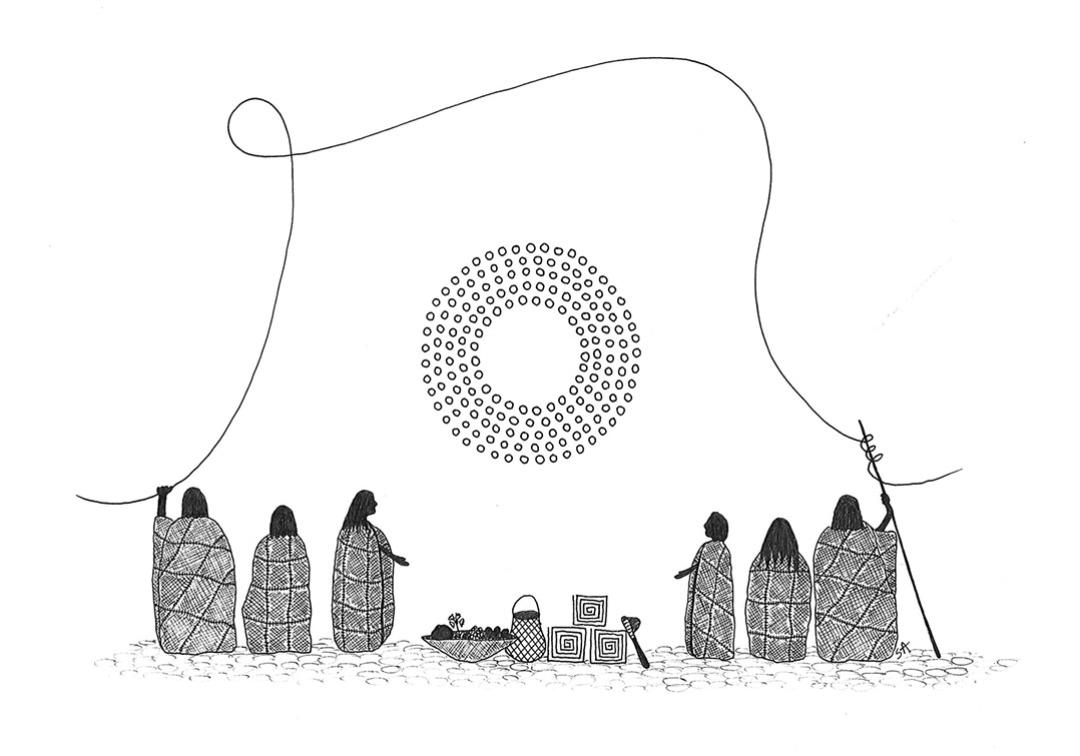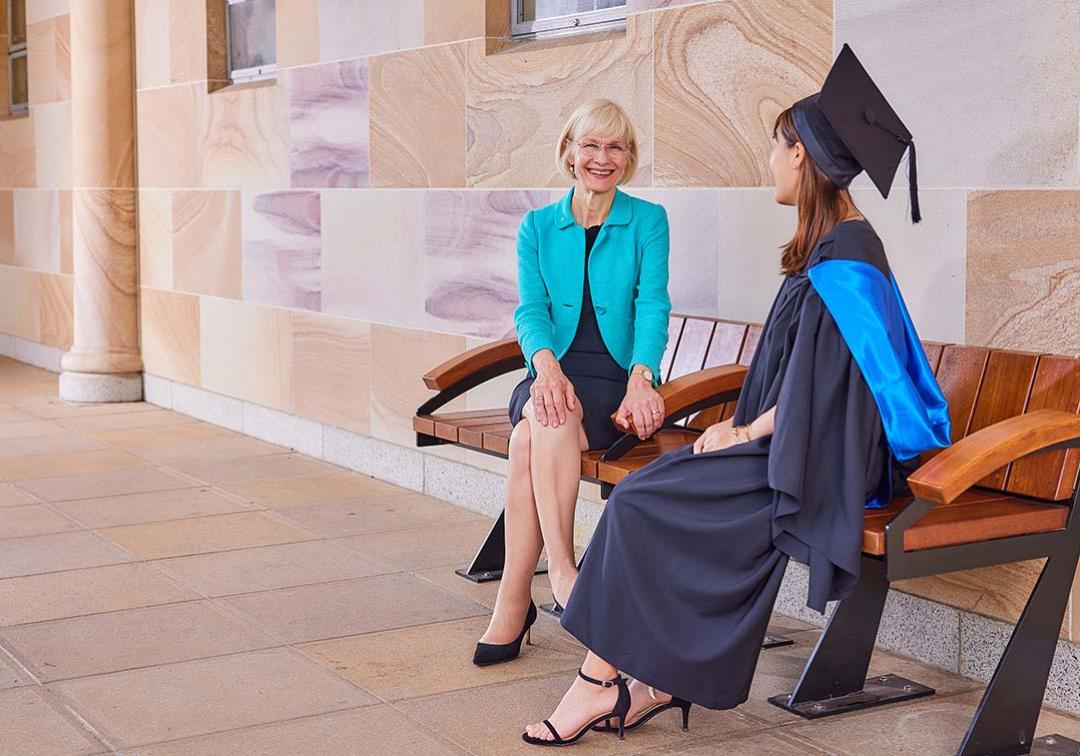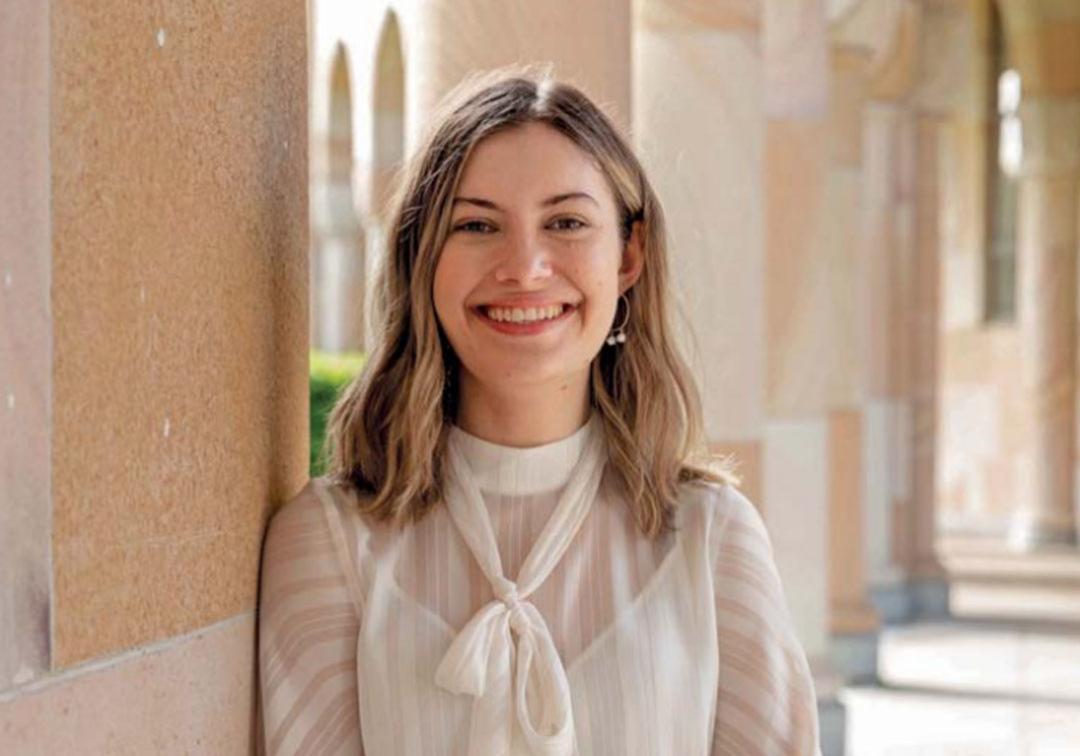
Bachelor of International Studies (Honours)
Overview
Pursue a career anywhere in the world with the Honours degree that elevates your already thorough knowledge of global issues from social science perspectives and your enhanced capacity for cross-cultural understanding.
The world is yours with this high-profile program, designed to prepare you for leading positions with international health and aid agencies, government departments or non-profit organisations.
During your study you'll develop core skills and knowledge in theory and research, immersing yourself in the cultural and communicative aspects of globalisation and the world system through coursework and a research project in your chosen field.
Along your journey to graduation you'll learn how to think clearly, flexibly and critically, know how to weigh up evidence and arguments, and make rational choices. You'll gain the skills to express yourself effectively, work cooperatively in a team, and demonstrate a depth of understanding in one or more areas of knowledge.
Program highlights
- The Bachelor of International Studies (Honours) degree develops core skills and knowledge in theory and research in the cultural and communicative aspects of globalisation and the world system.
- The program is based on a combination of coursework and a research project in the chosen field of study.
Majors
Tailor your studies to suit your goals. This program offers these options:
- Chinese
- French
- German
- Indonesian
How you'll learn
Your learning experiences are designed to best suit the learning outcomes of the courses you choose.
- Lectures
- Tutorials
- Research experience
- Fieldwork
- Workshops
What you'll study
At UQ, degrees are called 'programs' and subjects are called 'courses'. Here's a sample of the courses you could study in this program:
- Honours Research Thesis
Career possibilities
Our programs prepare you for your first job and beyond. Depending on which major you choose, here are some of the careers you could be on your way to:
- Ministerial officer
- Asia-Pacific international relations adviser
- Interpreter
- Foreign language analyst
- International engagement manager
- Policy adviser
- Consular staff member
- Humanitarian resourcing specialist
- Development program coordinator
Events
See all events
23 June
National Indigenous Business Summer School in Winter
Stories
See all storiesStories
See all stories
Uni life
What’s it really like to study an economics degree at UQ?
Entry requirements
Prerequisites
- Bachelor of International Studies from the University (or equivalent) in a relevant major, or the relevant Honours entry courses; and
- have gained a grade point average (GPA) of 5.0 on a 7-point scale (or higher set by the Head of School for specific fields of study); or
- satisfy the executive dean that the person is qualified to undertake the program based on the person's academic records and subject to completion of additional work, if set.
Other Entry Requirements
- The head of school may limit places depending on supervisor availability.
- Once eligibility is established, entry is via a competitive selection process based on GPA.
Prerequisites
- Bachelor of International Studies from the University (or equivalent) in a relevant major, or the relevant Honours entry courses; and
- have gained a grade point average (GPA) of 5.0 on a 7-point scale (or higher set by the Head of School for specific fields of study); or
- satisfy the executive dean that the person is qualified to undertake the program based on the person's academic records and subject to completion of additional work, if set.
Other Entry Requirements
- The head of school may limit places depending on supervisor availability.
- Once eligibility is established, entry is via a competitive selection process based on GPA.
English language requirements
IELTS overall 6.5; reading 6; writing 6; speaking 6; listening 6. For other English Language Proficiency Tests and Scores approved for UQ
TOEFL iBT (including Paper Edition) - Overall 87, listening 19, reading 19, writing 21 and speaking 19.
PTE Academic - Overall Score of 64 and 60 in all sub bands.
BE - A minimum overall grade of 4 plus a minimum grade of C in all macro skills.
CES - Overall 176 and 169 in all sub bands.
OET is not accepted.
There are other ways to meet the English language requirements. For some programs, additional conditions apply.
Student visas
International students who are accepted into full-time study in the Bachelor of International Studies (Honours) are eligible to apply for an Australian student visa (subclass 500).
There are a number of requirements you must satisfy before a visa is granted, including the Genuine Student (GS) requirement.
Additional application information
Fields of study
Fields of study
Tailor your studies to suit your goals. This program offers these options:
There are separate majors for native speakers of Mandarin and other Chinese dialects.
Many students study Chinese alongside courses in business, education, tourism, engineering, information technology or politics, leading to careers in various fields.
Courses in this major cover language skills and offer knowledge about some of the major historical, social, literary and philosophical movements in the Francophone world.
Many graduates use their language competency to enhance employability in fields such as business, education, tourism and politics.
Developing competence in speaking, reading and writing German can improve career outcomes in fields such as business, engineering and law.
Bahasa Indonesia, the official language of Indonesia, has been identified as one of the crucial language skills needed for future Australian growth.
In this honours year, you will conduct independent research and gain skills in research and report writing.
As Indonesia plays a bigger role in our region, this major is beneficial for careers in business, education, tourism, law, mining and extractives, public policy, security, defence and foreign policy.
The Honours program in International History prepares students to undertake advanced research in history, and introduces the techniques, methodologies, writing and communication skills required of the professional researcher.
Students write a thesis of 15,000-20,000 words on a topic of their choice under the direction of a thesis adviser.
Students will complete specialist research courses in historical theory and/or historiography and selected courses in the fields of Australian, Asian, American, European, cultural, applied, and community history.
As a student in this major you'll understand development and inequality in historical as well as contemporary contexts, and be introduced to a range of important issues including the roles of different actors and agencies in development, ranging from international institutions to community groups.
Graduates can consider roles in international development and humanitarian and community services.
International relations provides an in-depth understanding of the nature and exercise of power in world politics; the origins, constitution and development of the international system; how ideas shape order, justice and security; Australia's role in global affairs, the interplay between domestic, international and transnational politics, and a diverse range of state and non-state actors
Graduates of this major will be global citizens, intellectually open and flexible, aware of and sensitive to cultural difference, and motivated to make positive change through global engagement.
Choose from courses about foreign policy, terrorism and insurgency, human rights and foreign policies.
Many students study Japanese alongside courses like business, education and tourism to broaden their career opportunities in these fields.
There are speaking and writing courses, along with teachings about Korean films, TV dramas, internet culture and even pop songs.
Many students also undertake other courses in various fields where their major in Korean can a prove a future career asset, like business, education and tourism.
Issues you'll examine include peacekeeping, ethics and justice, Indigenous politics and development politics.
You'll find many career pathways before you in diplomacy and foreign affairs, defence and intelligence, international development and humanitarian and community services.
You'll learn how Russian society has changed over centuries, develop an appreciation of Russian literature, drama and film, and master a language spoken by 200 million people.
You'll develop competence in skills which can translate to careers in business, education and law, or various other fields.
Courses also cover Latin American thinking, European film and how Spanish has become the official language for major international bodies like the United Nations and World Bank.
Mastering a world language like Spanish will enhance future career opportunities if you're also studying business, education, engineering and other fields.
Fields of study
Tailor your studies to suit your goals. This program offers these options:
There are separate majors for native speakers of Mandarin and other Chinese dialects.
Many students study Chinese alongside courses in business, education, tourism, engineering, information technology or politics, leading to careers in various fields.
Courses in this major cover language skills and offer knowledge about some of the major historical, social, literary and philosophical movements in the Francophone world.
Many graduates use their language competency to enhance employability in fields such as business, education, tourism and politics.
Developing competence in speaking, reading and writing German can improve career outcomes in fields such as business, engineering and law.
Bahasa Indonesia, the official language of Indonesia, has been identified as one of the crucial language skills needed for future Australian growth.
In this honours year, you will conduct independent research and gain skills in research and report writing.
As Indonesia plays a bigger role in our region, this major is beneficial for careers in business, education, tourism, law, mining and extractives, public policy, security, defence and foreign policy.
The Honours program in International History prepares students to undertake advanced research in history, and introduces the techniques, methodologies, writing and communication skills required of the professional researcher.
Students write a thesis of 15,000-20,000 words on a topic of their choice under the direction of a thesis adviser.
Students will complete specialist research courses in historical theory and/or historiography and selected courses in the fields of Australian, Asian, American, European, cultural, applied, and community history.
As a student in this major you'll understand development and inequality in historical as well as contemporary contexts, and be introduced to a range of important issues including the roles of different actors and agencies in development, ranging from international institutions to community groups.
Graduates can consider roles in international development and humanitarian and community services.
International relations provides an in-depth understanding of the nature and exercise of power in world politics; the origins, constitution and development of the international system; how ideas shape order, justice and security; Australia's role in global affairs, the interplay between domestic, international and transnational politics, and a diverse range of state and non-state actors
Graduates of this major will be global citizens, intellectually open and flexible, aware of and sensitive to cultural difference, and motivated to make positive change through global engagement.
Choose from courses about foreign policy, terrorism and insurgency, human rights and foreign policies.
Many students study Japanese alongside courses like business, education and tourism to broaden their career opportunities in these fields.
There are speaking and writing courses, along with teachings about Korean films, TV dramas, internet culture and even pop songs.
Many students also undertake other courses in various fields where their major in Korean can a prove a future career asset, like business, education and tourism.
Issues you'll examine include peacekeeping, ethics and justice, Indigenous politics and development politics.
You'll find many career pathways before you in diplomacy and foreign affairs, defence and intelligence, international development and humanitarian and community services.
You'll learn how Russian society has changed over centuries, develop an appreciation of Russian literature, drama and film, and master a language spoken by 200 million people.
You'll develop competence in skills which can translate to careers in business, education and law, or various other fields.
Courses also cover Latin American thinking, European film and how Spanish has become the official language for major international bodies like the United Nations and World Bank.
Mastering a world language like Spanish will enhance future career opportunities if you're also studying business, education, engineering and other fields.
Fees and Scholarships
Indicative annual fee
Approximate yearly cost of tuition (16 units). Your fees will vary according to your selected courses and study load. Fees are reviewed each year and may increase.
$14,275
2024
$14,275
2024
Approximate yearly cost of tuition (16 units). Your fees will vary according to your study load. Fees are reviewed each year and may increase.
AUD $41,120
2024
AUD $41,120
2024
Government assistance
Financial aid
As an international student, you might be eligible for financial aid – either from your home country, or from the Australian Government.
HECS-HELP
Domestic places in the Bachelor of International Studies (Honours) are Commonwealth Supported. This means the cost of your education is shared between you and the Australian Government.
Instead of tuition fees, Commonwealth Supported students pay what are called student contribution amounts.
HECS-HELP is an Australian Government loan scheme to assist eligible students with the cost of their student contribution amounts.
Centrelink support
The Australian Government offers a number of income-support payments to eligible Australian university students.
Scholarships
You may be eligible for more than 100 scholarships, including:
How to apply
Applying online
All international applications should be submitted to UQ. If you prefer, you can use an approved UQ agent in your country.
The program code for the Bachelor of International Studies (Honours) is 2317.
Applying online
All domestic applications should be submitted to UQ.
The program code for the Bachelor of International Studies (Honours) is 2317.
Important dates
The closing date for this program is:
- To commence study in semester 1 - November 30 of the previous year.
To learn more about UQ dates, including semester start dates, view the Academic Calendar.
Important dates
The closing date for this program is:
- To commence study in Semester 1 - January 31 of the year of commencement.
To learn more about UQ dates, including semester start dates, view the Academic Calendar.
Aboriginal and Torres Strait Islander applicants
For support with applying – or if you have any questions about university life – get in touch with our Aboriginal and Torres Strait Islander Studies Unit.
Explore other programs
Express yourself. And your interest.
They say choosing a degree is hard, which is why we've made it easy. Register your interest and we'll send you everything you need to know about applying to UQ.







